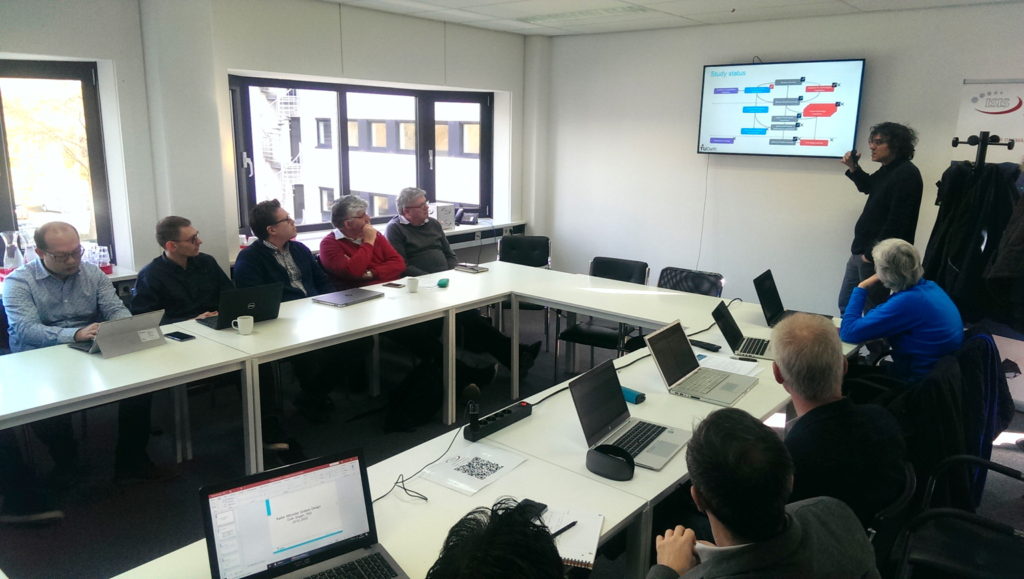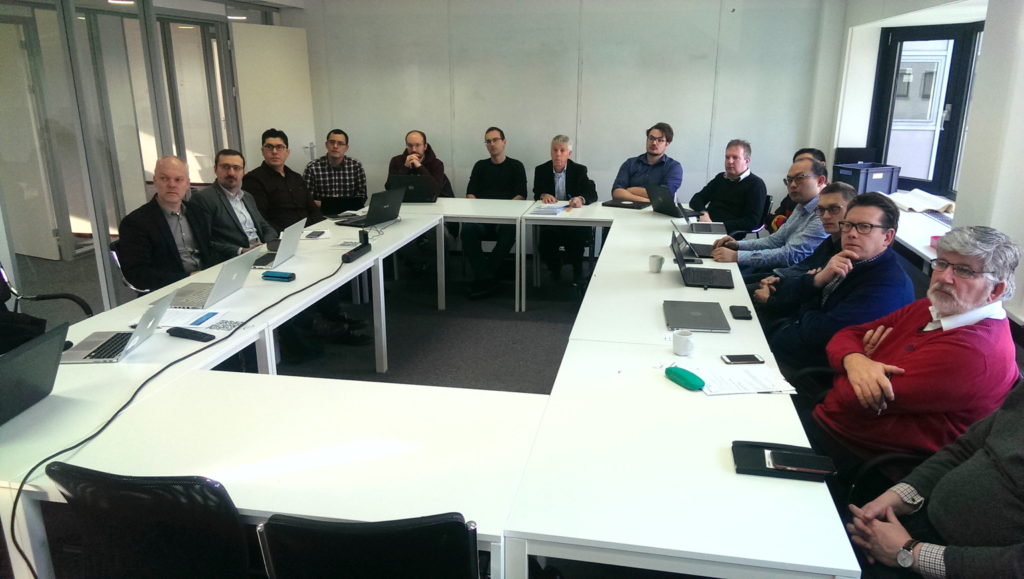We look back on the successful workshop on the current status of the NL-RIA research and the way to go ahead. The workshop was hosted by ISIS in Delft and took place on Wednesday 19 February 2020.

Our four postdocs presented their results as till now. Yuanhao Li presented the performance of the chosen altimeter concepts and the roadmap to develop them accounting for increasing complexity. Ozan Dogan presented the design and prototyping of the micro electronics of swarmSAR. Lorenzo Iannini presented the radar technical system parameters for distinguished swarmSAR concepts. And Alden Yellowhorse presented several origami-like folding concepts for micowave antennas and the performance implications for these structures.

Jian Guo (TU Delft, Aerospace department) presented an analysis on mission requirements for several altimeter constellation concepts, including orbits, constellation maintenance and propellant requirements. Niels Bernving and Bert-Johan Vollmuller (NLR) commented on swarmSAR preliminary mission requirements and their consequences for, a.o., downlink, size and power requirements. Eric Bertels (ISIS) showed properties of several cubesat specimen and the road to match mission and payload requirements into the ISIS cubesat blueprints.
Paco Lopez Dekker, our Principal Investigator, discussed roadmaps for NL-RIA, including possible funding opportunities as the three-year NL-RIA funding from the NWO-NSO knowledge network programme will come to an end halfway 2021. We think continuity can be realised most conveniently by distinguishing three topics: the swarmSAR constellation, the altimeter constellation, and deployable antennas
The workshop was very cooperative and productive: we had plenty of discussion after each presentation and many new suggestions for the road to go.
All presentations and extensive workshop minutes, including a concise report on the discussion, can be found in the Resources section of this website (see menu bar at the top).

